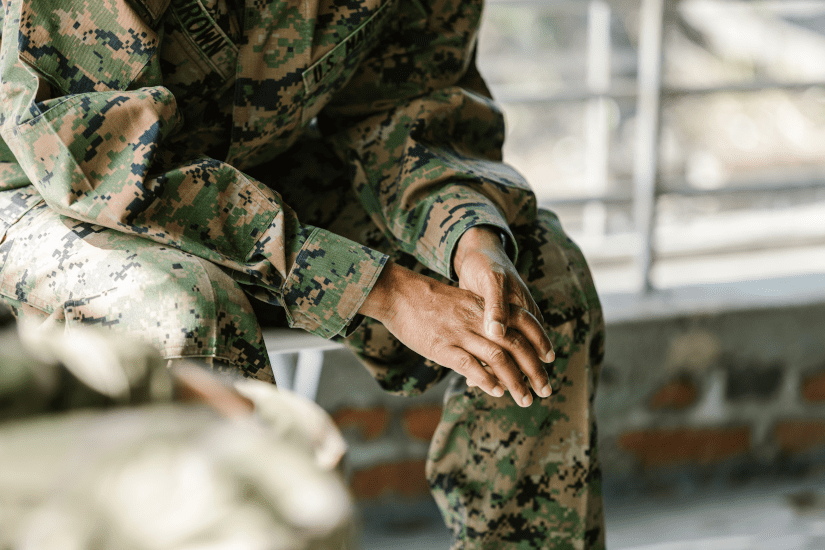Members of the armed forces—particularly those who spend time in combat zones—face many challenges during their time in the service. And for many, those challenges follow them home in one form or another after their service has been completed. As a result, many veterans turn to drugs or alcohol as a coping mechanism. In fact, more than one in ten veterans—that is, more than 10 percent of those who have served—have been diagnosed with a substance use disorder.
Let’s look at some of the driving forces behind this problem.
Reasons Why Veterans Turn to Drugs or Alcohol
There are many reasons why a person who has served in the military might find themselves using drugs or alcohol.
Here is a partial list:
Difficulty making the transition to civilian life: Civilian life is much different that the structures, procedures, and responsibilities of military service. The transition may also cause a veteran to feel as though they have lost a clear purpose.
Post-traumatic stress disorder: Witnessing or participating in violence can lead to PTSD, a disorder characterized by flashbacks and other symptoms that stem from experiencing trauma.
Issues with chronic pain: Those who suffer injuries while serving often find themselves in ongoing pain that is extremely difficult to manage. They may become addicted to prescription painkillers or turn to illicit drugs to try to keep the pain under control.
Mental health disorders: Anxiety, depression, and more are common in the veteran population and can lead to drug or alcohol use—including developing a dependence on prescription medications.
Reasons Why Veterans Are Sometimes Slow to Get Help
For some veterans, the idea of seeking out help for a substance use disorder is difficult to come to terms with. This may be true for a variety of reasons, including (but certainly not limited to):
A sense that no one can really understand: Some vets may be reluctant to seek treatment because they feel as though no one who has not served in the military can truly understand what they have gone through and how they are feeling now.
A desire to be self-reliant: In some cases, a veteran may believe they should simply be able to overcome a substance use disorder on their own. Not wanting to be perceived as weak, they may attempt to muddle through on their own—even when it becomes clear that is not working.
A sense of guilt or shame: It is not uncommon for veterans to feel embarrassed about needing help. This may be related to their need to be self-reliant, but it may also just be grounded in a notion that those who serve should hold themselves to a higher standard—a standard they have failed to meet by turning to drugs or alcohol.
A Reason for Veterans to Be Hopeful About Help
The reasons for reluctance listed above can all be powerful deterrents that keep a veteran from pursuing treatment for a substance use disorder. But a new program offered by Bel Aire Recovery System has been carefully designed to help overcome those deterrents.
Known as Tactical Recovery (and created in collaboration with the national non-profit PsychArmor), the program is specifically for veterans of the armed services and is intended to meet their individual needs. Grounded in a commitment to trauma-informed, culturally competent approaches to treatment, Tactical Recovery provides veterans who are struggling with a substance use disorder an evidence-based treatment option that acknowledges the particular needs of the veteran community.
Tactical Recovery can also address mental health disorders that may be contributing to—or be worsened by—a substance use disorder. Good mental health and sobriety are both extremely important, and they go hand-in-hand for veterans.
We Thank You For Your Service and We Are Ready to Serve You
At Bel Aire Recovery Center, we understand the rigors and stresses of military service, and the ways in which those things can translate into ongoing issues once a person returns to civilian life. We are proud to offer the Tactical Recovery program as a way to give back to the veteran community with exceptional mental health and substance use disorder treatment.
If you are a veteran (or if you know a veteran) who needs help reclaiming sobriety, we would be truly honored to help—and we have the experience, expertise, and compassion to ensure that we can help you begin your recovery journey with confidence.




